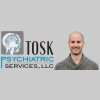Dedicated to effective and compassionate care for individuals with neurological challenges. Our team of experienced Psychologists & Brain Injury professionals provide neuropsychological rehabilitation and treatment for individuals with brain injuries and other neurological impairments. We utilize a comprehensive approach based on proven, research-based methods to rebuild and restore cognitive behavior.
We provide neuropsychological rehabilitation of brain injury and related disorders in Ocean and Monmouth County, New Jersey. Our team of Psychologists & Brain Injury professionals are here to help at 3 convenient locations in Toms River, Manahawkin, and Freehold, NJ.
Our Neuropsychology team is composed of talented psychologists, therapists, and specialists licensed and certified in their respective fields: clinical neuropsychology, clinical psychology, rehabilitation, biofeedback, counseling, ADHD coaching, and brain injury rehabilitation.Life can be hard enough in children and adults with attention deficit hyperactivity disorder (ADHD).
We provide neuropsychological rehabilitation of brain injury and related disorders in Ocean and Monmouth County, New Jersey. Our team of Psychologists & Brain Injury professionals are here to help at 3 convenient locations in Toms River, Manahawkin, and Freehold, NJ.
Our Neuropsychology team is composed of talented psychologists, therapists, and specialists licensed and certified in their respective fields: clinical neuropsychology, clinical psychology, rehabilitation, biofeedback, counseling, ADHD coaching, and brain injury rehabilitation.Life can be hard enough in children and adults with attention deficit hyperactivity disorder (ADHD).
Services
About
Report
Our team of experienced professionals provide neuropsychological rehabilitation and treatment for individuals with brain injuries and other neurological impairments.
We utilize a comprehensive approach based on proven, research-based methods to rebuild and restore cognitive behavior.
We provide neuropsychological rehabilitation of brain injury and related disorders in Ocean and Monmouth County.
Focused on teaching strategies leading to functional progress and getting you back to living a full and meaningful life.
We utilize a comprehensive approach based on proven, research-based methods to rebuild and restore cognitive behavior.
We provide neuropsychological rehabilitation of brain injury and related disorders in Ocean and Monmouth County.
Focused on teaching strategies leading to functional progress and getting you back to living a full and meaningful life.
Brain Injury
Report
A brain injury is any injury occurring in the brain.
Brain injuries effect millions of people every year.
An estimated 2.4 million children and adults in the U.S. sustain a traumatic brain injury (TBI) and another 795,000 individuals sustain an acquired brain injury (ABI) from non-traumatic causes each year.
Currently more than 5.3 million children and adults in the U.S. live with a lifelong disability as a result of TBI and an estimated 1.1 million have a disability due to stroke.
Brain injuries refer to a physical assault on the brain.
Brain injuries effect millions of people every year.
An estimated 2.4 million children and adults in the U.S. sustain a traumatic brain injury (TBI) and another 795,000 individuals sustain an acquired brain injury (ABI) from non-traumatic causes each year.
Currently more than 5.3 million children and adults in the U.S. live with a lifelong disability as a result of TBI and an estimated 1.1 million have a disability due to stroke.
Brain injuries refer to a physical assault on the brain.
Acquired Brain Injuries
Report
Brain injuries are not limited to traumatic brain injuries (TBI's).
Brain damage can manifest itself in many ways that do not fit into the TBI spectrum.
At Pathways, we have experienced therapists and physicians that can provide comprehensive care for brain injuries even if they were not caused by blunt external force.
As opposed to TBI's, acquired brain injuries (ABI's) specifically refer to cerebral vascular accidents such as a stroke, aneurysm, or vascular dementia.
Other disorders may differ from TBI because they are hereditary or neurodegenerative, such as Parkinson's, autism, or multiple sclerosis.
Brain damage can manifest itself in many ways that do not fit into the TBI spectrum.
At Pathways, we have experienced therapists and physicians that can provide comprehensive care for brain injuries even if they were not caused by blunt external force.
As opposed to TBI's, acquired brain injuries (ABI's) specifically refer to cerebral vascular accidents such as a stroke, aneurysm, or vascular dementia.
Other disorders may differ from TBI because they are hereditary or neurodegenerative, such as Parkinson's, autism, or multiple sclerosis.
Vascular Dementia
Report
Vascular dementia shares many similarities with strokes.
Its root cause is poor blood flow in the brain.
However, while it is possible for a stroke to contribute to the conditions in vascular dementia, one does not necessarily need to have a stroke to experience ischemic brain damage.
One may think of vascular dementia as a chronic stroke: with many smaller events contributing to a progressive condition.
It can be caused by microbleeeding, microinfacts, arteriolsclorosis, or any other condition that limits blood supply to brain tissue.
Its root cause is poor blood flow in the brain.
However, while it is possible for a stroke to contribute to the conditions in vascular dementia, one does not necessarily need to have a stroke to experience ischemic brain damage.
One may think of vascular dementia as a chronic stroke: with many smaller events contributing to a progressive condition.
It can be caused by microbleeeding, microinfacts, arteriolsclorosis, or any other condition that limits blood supply to brain tissue.
Dementia & Alzheimer’s
Report
Dementia does not refer to a specific disease.
Rather, dementia generally refers to a wide array of neurocognitive conditions that show a strong decline in mental capacity and function.
Neurodegeneration will usually progress until normal daily activities and functions become challenging.
Alzheimer's is the most common form of dementia.
The most common symptoms relate to memory and thinking.
Neural tissues die in an irreversible manner, eventually spreading into key parts of the brain that control memory and other important mental functions.
Rather, dementia generally refers to a wide array of neurocognitive conditions that show a strong decline in mental capacity and function.
Neurodegeneration will usually progress until normal daily activities and functions become challenging.
Alzheimer's is the most common form of dementia.
The most common symptoms relate to memory and thinking.
Neural tissues die in an irreversible manner, eventually spreading into key parts of the brain that control memory and other important mental functions.
Reviews

Be the first to review Pathways Neuropsychology Associates.
Write a Review

